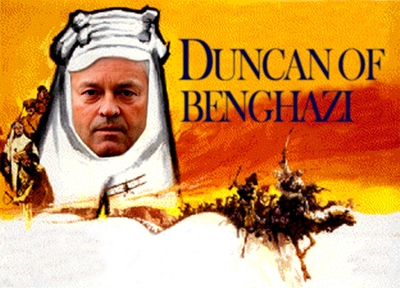 Junior ministers rarely get to influence high-level policy or be seen publicly to have
done so. So Development Minister Alan Duncan must feel particularly pleased that his brainchild, the so-called “Libya oil cell”, was set up to block fuel supplies to Tripoli; and that its
work – as well as the Tory MP’s role – has now become public. On the day that David Cameron jets off to the Paris
Conference no less.
Junior ministers rarely get to influence high-level policy or be seen publicly to have
done so. So Development Minister Alan Duncan must feel particularly pleased that his brainchild, the so-called “Libya oil cell”, was set up to block fuel supplies to Tripoli; and that its
work – as well as the Tory MP’s role – has now become public. On the day that David Cameron jets off to the Paris
Conference no less.
The BBC reports that a six person team was set, taking in people from the Cabinet Office and the MoD, but working out of the Foreign Office. The team focused on depriving Gaddafi’s regime of oil by cutting off smuggling routes and operations in order to cripple the Libyan military machine and create popular pressure on the government. Until then, there had been credible reports of smuggling over land from Algeria into Libya – something Coffee House raised in early summer. The second objective of the unit was apparently to keep Bengazi supplied with fuel even when it looked as if they would not have the means to immediately pay.
Known to have been more cautious about the “Arab Spring” than many of his ministerial colleagues and with long-standing relationships in several conservative Gulf states, Duncan was always going to be an unlikely revolutionary. But no more, it seems. Who knows, maybe a Duncan Street in Tobruk will be inaugurated once the new Libyan government is in place.
More seriously, Duncan’s skills, network and knowledge benefited the government – in exactly the kind of way that people who have had a non-political career before they entered the House of Commons can. It makes a good case for John Major’s proposal some time ago to bring more experts into ministerial positions.






Comments